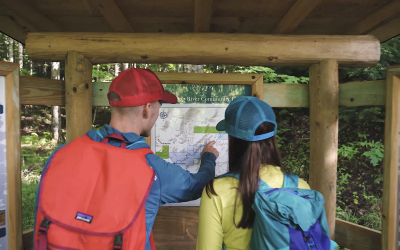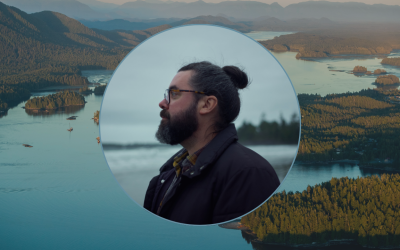During the last five years, Iceland has experienced an unprecedented surge in visitation. The North Atlantic island nation known for its rugged landscapes, northern lights, and artistic innovations has become a popular year-round destination, and the sudden growth has solidified tourism’s important economic role. But the newfound prosperity brings new challenges with it. How can a rapidly-maturing destination manage its product responsibly and sustainably while accounting for how tourism affects its residents, environment, and capacity to accommodate eager visitors?
Ólöf Ýrr Atladóttir is the Director General of Icelandic Tourist Board and also serves as Vice President of the European Tourism Council (ETC). In preparation for her keynote presentation at Destination Think Forum 2016, we spoke with Ólöf to learn about Iceland’s approach to destination management, the impact of Airbnb, and trends that affect tourism across Europe.
Destination Think: Can you describe Iceland’s recent growth in visitation?
Ólöf: Iceland has experienced an extremely rapid growth in visitor numbers over the past half-decade or so. Visitor numbers have grown annually at a rate of 20-30%, and to put these numbers into some sort of perspective, the number of visitors more than doubled between 2011 and 2015. During that period, the relative growth has been larger outside of the summer season, thereby contributing to making tourism stronger as a year-round occupation in Iceland and creating sustainable jobs around the country.
Tourism has been extremely important in Iceland in the aftermath of the global recession. It has been the driving force behind the country’s gross domestic product (GDP) growth, has become the main source of foreign currency income, and the employment created around the island in the past years can be attributed to the positive development within the industry.
From a societal point of view, tourism has raised service levels around the country, benefitting both guests and locals and has become an incentive for new future visions and planning procedures within communities.
What has caused that growth?
The increase in demand for Iceland as a travel destination as shown by the rising numbers can be attributed to a multitude of reasons; the factors that determine travellers interests, preferences and decision making are complex.
Iceland has enjoyed increasing popularity for a long time, so generally, growth numbers in Iceland have been higher than the world average. However, since 2008, some of the more obvious incidents that would have spiked the interest for Iceland that was already in place are: the exposure following the bank crash in 2008 and the currency devaluation that followed that; the infamous eruption of the Eyjafjallajökull volcano in 2010 and the focus it placed upon Iceland’s natural and geological characteristics; the success of many Icelandic artists, not least within the music industry; the popularity of Iceland as a setting for various film projects; and of course the clever content marketing that the Promote Iceland agency has been responsible for since 2010.
How has the rapid increase in visitation to Iceland affected your organization’s plans to develop and manage its destination?
Iceland has been going through a steep learning curve. Fortunately, there is an increasing understanding of the challenges brought on by the industry’s success. The Icelandic Tourist Board has focused its efforts on five main areas in the past few years:
- Quality and environmental issues within the industry itself, where our main engine is Vakinn, the quality and environmental assessment system for Icelandic tourism
- Environment, development, safety and planning at tourist sites
- Research and statistics
- Regional development and destination management planning
- Licensing and regulation
Can you describe the impact of Airbnb on your destination?
The rapid growth of tourism has caused a large increase in hotel occupancy rates all around the country, but especially in Reykjavík, where the numbers were 79% in 2015 and 82-90% during the summer months (June, July and August). This has resulted in an increased demand for accommodation outside of the hotel sector, and many residents have seen opportunities for raising revenue by renting out accommodation through sites such as Airbnb. It is now estimated that approximately 3200 beds were available on such sites in Reykjavík alone in July 2016 (compared to a total of 9400 hotel beds). It is also estimated that approximately 40% of bednights sold are unregistered. This is, of course, an issue authorities wish to address, since the situation indicates that a lot of revenue goes undetected by tax authorities, and this by itself skews the competitiveness within the accommodation sector.
However, it should be noted that the demand for Airbnb is not only rooted in a scarcity of more conventional accommodation – Airbnb is also providing a new type of accommodation which coincides more closely to new demands for authentic experiences, a greater sense of immersing in a new culture, and more independence in travel, etc.
What is the framework you’ve helped create around Airbnb’s operation in Iceland?
A bill was passed recently, where the aim was to:
- Simplify annual licensing procedures for those who wish to rent out their properties for a limited time.
- Set up a framework for the renting out of private properties to tourists on sites such as Airbnb, for example. The legislation will go into effect on January 1st, 2017.
Given your role as Vice President of European Tourism Council (ETC), what trends are you seeing in Europe?
Within Europe, I sense a similar trend in tourism as in Iceland: International travel is on the rise, and people travel for leisure as never before. This is creating new challenges within the tourism sector and, in some cases, tensions that strain the relationship between the industry and the social and natural environment it relies upon. The industry has to develop approaches that facilitate addressing these challenges in a holistic, solution-focused manner.
Within the ETC, this approach can be seen with respect to new emphasis in the organization’s operations. Traditionally based on marketing cooperation in long-haul markets, the ETC has recently enhanced its scope of activities to encompass advocacy issues such as sustainability.
How do you see the role of the DMO changing over the next 5 years?
I believe there will be an increasing emphasis on developmental issues, the regulatory environment, environmental issues and responsibility, as well as tourism’s place within the social fabric of communities.
If there’s one thing you could learn or take away from Destination Think Forum, what would it be?
I am interested in learning about the ways that other destinations have responded to the growing maturity of tourism as an industry. Tourism is no longer a fledgling in the backseat, but a driver of economies which brings with it tremendous societal changes. There are interesting times ahead.
Gain more valuable insights from speakers, panelists and participants from Destination Think Forum, where the world’s leading destination marketers gathered to address their greatest challenges. Read more interviews with Forum’s Leading Thinkers.
Featured image credit: Moyan Brenn, Flickr












0 Comments